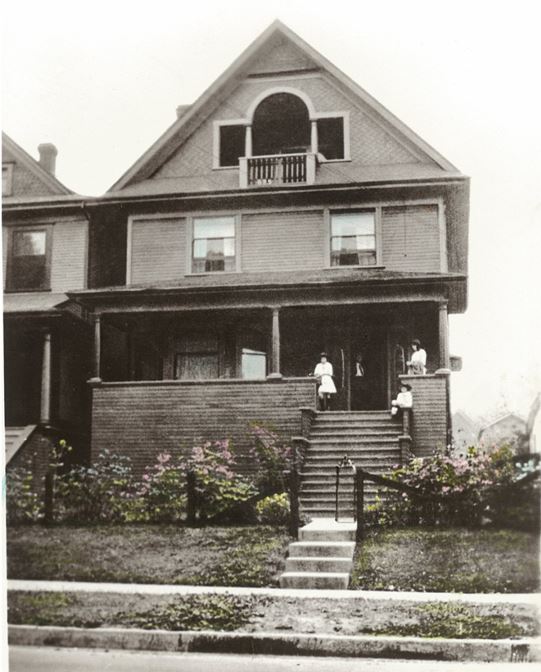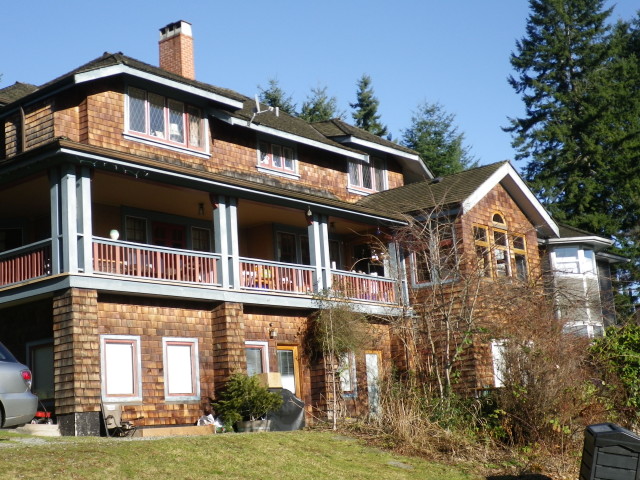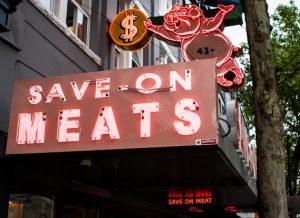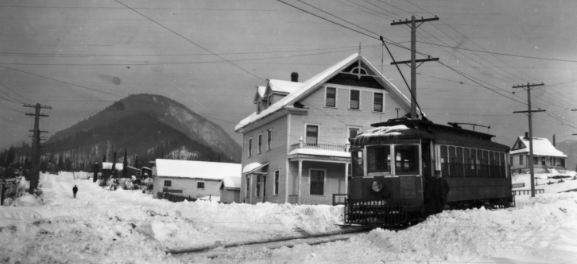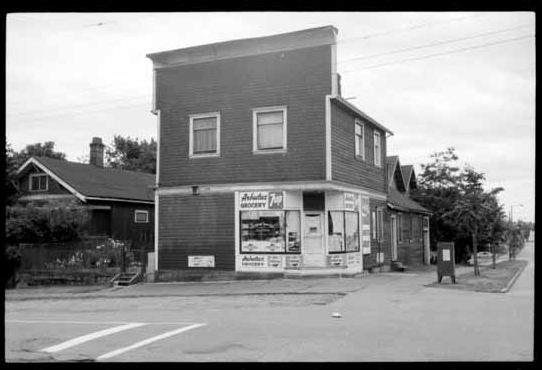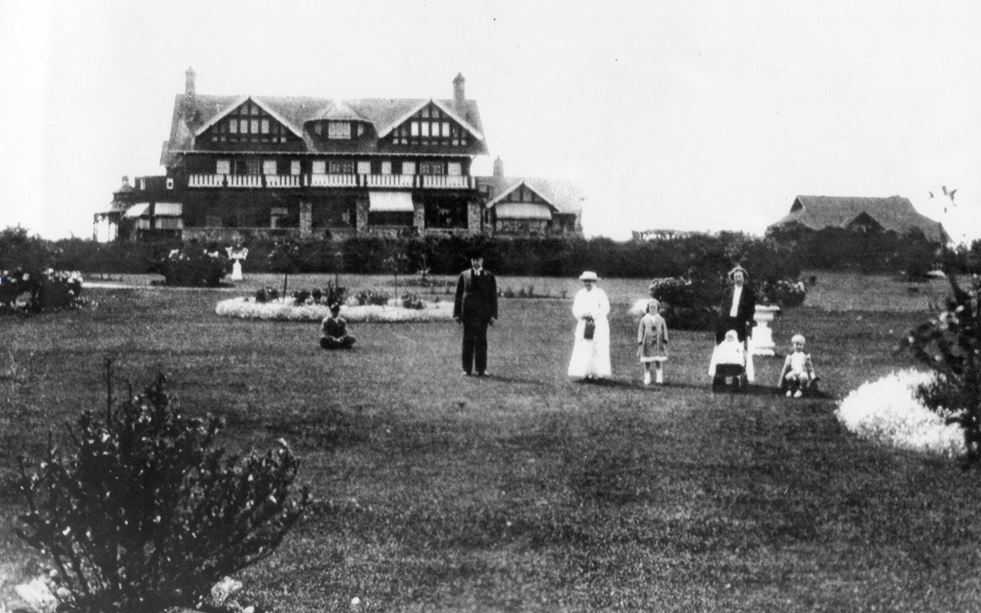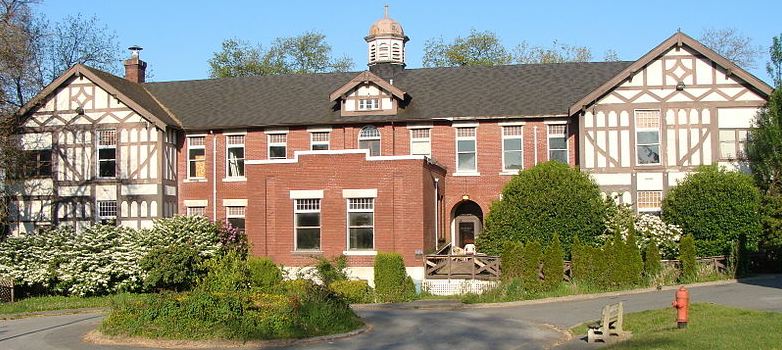A Spite house is a building “constructed or modified to irritate neighbours or other parties with land stakes. Spite houses often serve as obstructions, blocking out light or access to neighbouring buildings, or as flamboyant symbols of defiance. Because long-term occupation is at best a secondary consideration, spite houses frequently sport strange and impractical structures” Wikipedia.
The house on Somerset Street in North Vancouver was built in 1912 as a hunting lodge for Alvo von Alvensleben.
The story of Alvo von Alvensleben and the hunting lodge on Somerset appears in At Home with History: the secrets of Vancouver’s heritage houses:
A couple of weeks ago I was taking photos of this house on Somerset when Bob Findlay politely asked me what I was doing skulking around in his bushes.
Vancouver’s Downtown Eastside is a warehouse for the desperate: filled with crackheads, hookers, chronic alcoholics and the mentally unhinged. Drive down Hastings and it looks like a Dostoevsky novel. There are drug addicts shooting up in the alleys, pawn shops, scuzzy hotels and a myriad of agencies trying to unravel the mess.
This sketchy area—one of the poorest in the country—is getting a makeover, but not everybody thinks that’s a good thing.
I’m a huge fan of Samuel Maclure, a BC-born architect with an incredible design range. Maclure designed almost 500 houses in his 40-year career including the audacious Hatley Castle in Victoria, Gabriola on Davie Street, and Brock House at Jericho Beach.
There are several books about Samuel Maclure, but my favourite is Janet Bingham’s.
The large house at the corner of Lynn Valley and Hoskins Road has always intrigued me, so I dropped into the Community Archives last week to see what I could find out about it. Daien Ide, found this great photo taken around 1912, when the street car ran from the bottom of Lonsdale Street to the top of Lynn Valley Road—where our End of the Line general store now sits.
When I lived in Kitsilano 20 years ago, I used to drop into the grocery store on the corner of Arbutus and 6th. Even back then it was ahead of its time with organic produce and hard-to-find items. But just like The End of the Line and the Corner Store in North Vancouver have transformed from grocery stores to neighbourhood cafes, so has the Arbutus Grocery store – now Arbutus Coffee.
A photographic comparison of Ceperley House in 1912 and what is now the Burnaby Art Gallery a 100 years later
For more stories about L.D. Taylor’s Vancouver see: At Home with History: the secrets of Greater Vancouver’s Heritage Homes
Mayor Gregor Robertson held a press conference Friday announcing the City’s receipt of a $30-million anonymous donation to reopen Taylor Manor. After an extensive renovation and upgrade, the house will provide housing for 56 people with mental health issues who now live on the streets of Vancouver.


